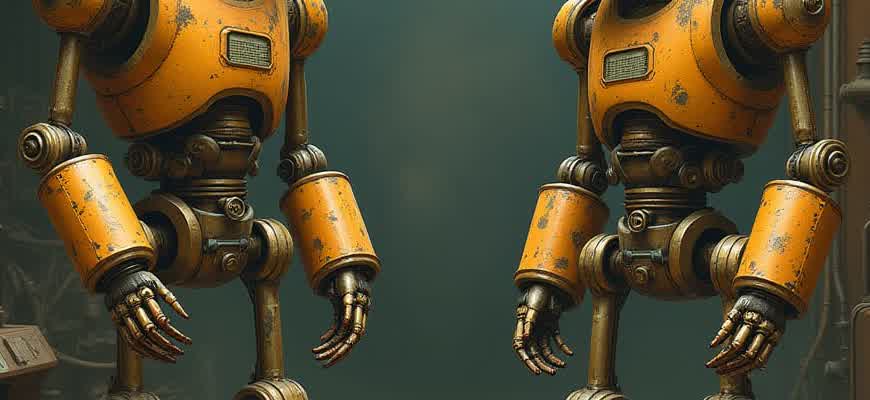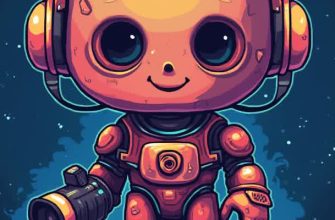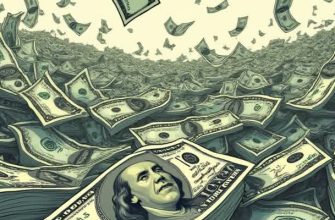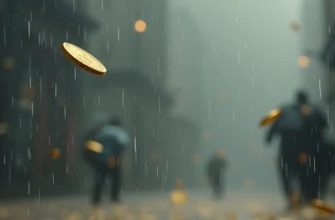
AI-driven applications for generating images are rapidly gaining popularity due to their ability to produce high-quality visuals without the need for artistic expertise. These tools leverage deep learning algorithms to transform simple prompts into elaborate images, offering a new level of creativity for users. Many of these platforms are now available for free, providing access to powerful image generation capabilities.
Key Features of Free AI Image Generators:
- Instant image creation based on textual descriptions
- Wide range of style options, from realistic to abstract
- No prior experience or artistic skill required
Advantages of Using Free AI Image Generators:
- Accessible for all users, regardless of technical background
- Cost-effective, allowing experimentation without financial commitment
- Quick results with minimal effort
“AI-based tools provide a level of creativity that empowers users to visualize concepts and ideas that may be difficult to execute traditionally.”
Comparison Table: Features of Popular Free AI Image Generators
| Tool | Key Features | Limitations |
|---|---|---|
| Tool A | Fast results, high-resolution images, multiple style options | Limited usage per day |
| Tool B | Customizable parameters, user-friendly interface | Watermarked images in free version |
- AI-Powered Image Generators: Transforming Your Visual Content
- Benefits of Using AI Image Generators
- How AI Image Generators Work
- Comparison Table: Free AI Image Generators
- Step-by-Step Guide to Generating Your First Image Using AI
- Steps to Generate Your First Image
- Platform Comparison
- Why AI-Generated Images Are a Game-Changer for Marketers
- Key Benefits of AI Image Generation for Marketing
- How AI Images Improve Engagement
- AI vs Traditional Visual Creation: A Comparison
- Conclusion
- Understanding the Customization Features of AI Picture Generators
- Key Customization Features
- How Customization Impacts Results
- Customization Options Overview
- How to Use AI-Generated Visuals in Your Social Media Strategy
- Key Strategies for Integration
- Tips for Maximizing Impact
- Examples of AI Visual Uses
- Common Mistakes to Avoid When Using an AI Image Generator App
- 1. Lack of Clear Instructions
- 2. Ignoring Image Resolution and Size
- 3. Misunderstanding the Limitations of AI
- Comparing AI Picture Generators: What Makes This Tool Stand Out?
- Key Features to Consider
- Advantages Over Competitors
- Comparison Table
AI-Powered Image Generators: Transforming Your Visual Content
Artificial intelligence has revolutionized the way we create visual content. With the advent of AI-based picture generation apps, anyone can now craft stunning images without the need for advanced design skills or expensive software. These tools leverage sophisticated algorithms to generate images from simple text prompts, enabling users to produce high-quality visuals effortlessly.
Among the most appealing features of AI picture generators is their accessibility. Many of these apps are available for free, making powerful design capabilities available to everyone, from hobbyists to professionals. By offering an intuitive interface and fast image creation, they allow users to explore their creative ideas without the constraints of traditional design tools.
Benefits of Using AI Image Generators
- Ease of Use: You don’t need a background in graphic design to create professional-level images.
- Cost-Effective: Many platforms provide free access to their tools, lowering the barrier to entry.
- Speed: AI generates images almost instantly, reducing time spent on manual creation.
- Customization: Adjust parameters like style, color scheme, and themes with ease.
How AI Image Generators Work
- Text Input: Provide a simple description or keywords to guide the AI in image creation.
- Processing: The AI uses natural language processing and machine learning to interpret your input and generate a corresponding visual.
- Refinement: Some apps allow you to fine-tune the output, making adjustments to meet your specific needs.
AI picture generation apps are transforming how content creators, marketers, and designers approach visual content, offering endless creative possibilities with just a few clicks.
Comparison Table: Free AI Image Generators
| App Name | Key Features | Free Tier Limitations |
|---|---|---|
| App 1 | Fast generation, customizable styles, high resolution | Limited number of images per month |
| App 2 | Multiple art styles, ease of use, export options | Watermark on free images |
| App 3 | Text-to-image, diverse themes, AI-enhanced edits | Limited access to advanced features |
Step-by-Step Guide to Generating Your First Image Using AI
Creating stunning visuals using AI is easier than ever. Whether you’re an artist, designer, or just curious about how AI can help in generating images, this guide will walk you through the essential steps. In just a few minutes, you’ll be able to create your own masterpiece with a free AI image generator.
Follow this detailed, step-by-step process to get started with generating images using AI technology. From selecting the right platform to customizing your output, this guide covers all aspects to ensure a smooth experience.
Steps to Generate Your First Image
- Choose an AI Image Generator Platform
- Select a free platform that offers AI-based image creation tools, such as DALL·E, Craiyon, or Stable Diffusion.
- Sign up or log in to the platform if necessary.
- Enter a Prompt
- Write a clear and detailed description of the image you want to generate.
- Be specific with your requests, mentioning the scene, style, colors, and any other elements you’d like to include.
- Customize Settings (Optional)
- Adjust the resolution or size of the generated image if the platform allows.
- Choose the style of the image, such as realism, abstract, or artistic interpretation.
- Generate the Image
- Click on the ‘Generate’ or ‘Create’ button to initiate the process.
- Wait for the AI to process the prompt and produce the image.
- Download or Save Your Image
- Once the image is generated, you can preview it and download the result.
- Save it to your device for further use or sharing.
Tip: The more specific and detailed your prompt, the better the AI can generate the image you envision. Experiment with different descriptions to achieve the best results.
Platform Comparison
| Platform | Free Tier Features | Customization Options |
|---|---|---|
| DALL·E | Free credits per month | Image resolution, style choice, prompt adjustments |
| Craiyon | Unlimited free use | Basic prompts, less control over styles |
| Stable Diffusion | Free access with community-based limits | Advanced settings for resolution and style |
Why AI-Generated Images Are a Game-Changer for Marketers
AI-generated visuals are revolutionizing how businesses approach marketing campaigns. These innovative tools provide an easy and cost-effective way to create high-quality, tailored images that resonate with target audiences. By eliminating the need for stock photos or hiring expensive photographers, brands can now quickly produce unique content at scale, enhancing the creative process.
Furthermore, AI tools enable marketers to fine-tune visual content based on data-driven insights, which can lead to higher engagement rates. These platforms offer a new level of personalization, allowing marketers to align visuals precisely with consumer preferences and trends, leading to more effective campaigns.
Key Benefits of AI Image Generation for Marketing
- Cost Efficiency: No need for expensive photo shoots or purchasing stock images. AI tools generate high-quality visuals at a fraction of the cost.
- Speed: Instant creation of custom images, reducing the time spent on production and enabling faster campaign rollouts.
- Endless Customization: Marketers can easily adjust and modify images to fit specific themes, demographics, or marketing goals.
How AI Images Improve Engagement
“AI-generated visuals help brands capture attention with striking, unique designs that stand out in a crowded digital space.”
AI tools offer an advanced level of customization, allowing marketers to create images that align with the brand’s message. These images can be adjusted in real-time, providing instant feedback and optimizing content for specific platforms, whether it’s for social media, emails, or advertisements.
AI vs Traditional Visual Creation: A Comparison
| Aspect | AI-Generated Images | Traditional Visual Creation |
|---|---|---|
| Cost | Low cost, minimal investment | High cost (photographer, models, equipment) |
| Time | Instant creation and modifications | Time-consuming process (planning, shooting, editing) |
| Customization | Highly customizable in real-time | Limited flexibility, requires reshooting |
Conclusion
AI-generated images have become an indispensable tool for modern marketers, offering cost-effective solutions, rapid turnaround times, and unparalleled customization. With the ability to create compelling visuals that align with specific campaign goals, businesses can drive higher engagement and achieve better results. As AI technology continues to evolve, its potential for transforming marketing strategies is limitless.
Understanding the Customization Features of AI Picture Generators
AI picture generators have become an essential tool for creating personalized visuals. These platforms allow users to generate images based on specific prompts and preferences. However, the real power of these tools lies in their customization features, which allow users to refine the output according to their needs. Understanding these options is key to harnessing the full potential of the technology.
From adjusting color schemes to defining the level of detail, AI generators offer a range of customizable settings. Users can often tweak various elements to ensure the image matches their vision. Below, we will explore some of the key customization features available in these platforms.
Key Customization Features
- Style Adjustments: Users can choose from a variety of art styles, such as realism, impressionism, or abstract. These styles influence the final appearance of the generated image.
- Detail Control: Platforms often offer sliders or options for fine-tuning the level of detail, allowing users to opt for a more abstract or detailed representation.
- Color Palette Selection: The color schemes can be adjusted, enabling users to choose a dominant color or tone for the image, ensuring it fits their aesthetic preferences.
- Resolution Settings: Depending on the application, users can set the resolution of the generated image, whether it’s for web use or print quality.
How Customization Impacts Results
- Refining Accuracy: The more specific the customization, the closer the output will align with the user’s vision. High levels of detail and specific color choices make the image more accurate.
- Optimizing for Different Uses: By adjusting resolution and style, users can ensure their image is suitable for various contexts, from social media to professional presentations.
- Creative Control: Customization gives users the freedom to experiment with unique looks, allowing for artistic expression and innovation in their projects.
“Customization options in AI picture generators empower users to translate their creative ideas into visual reality, making the tool not only powerful but also adaptable to diverse artistic needs.”
Customization Options Overview
| Feature | Impact on Image |
|---|---|
| Style | Affects the artistic representation (realism, abstract, etc.) |
| Detail | Determines the level of intricate features in the image |
| Color Palette | Shapes the mood and aesthetic of the image |
| Resolution | Defines the image’s quality and usability across platforms |
How to Use AI-Generated Visuals in Your Social Media Strategy
AI-generated images can enhance your social media presence by providing unique, engaging visuals that attract attention. These visuals can be created quickly and customized to match your brand’s aesthetic. Integrating AI-generated imagery into your posts can help maintain a consistent look while saving time and resources. However, it’s essential to know how and when to use them effectively to engage your audience.
To successfully incorporate AI-generated content into your social media, start by aligning the images with your overall brand messaging. It’s crucial to maintain a balance between originality and relevance, ensuring the visuals reflect your brand’s values and goals. Below are some practical ways to include AI visuals in your social media content.
Key Strategies for Integration
- Consistency is Key: Ensure that AI-generated visuals align with your existing color schemes, typography, and tone of voice.
- Use for Visual Storytelling: Use AI visuals to support your brand narrative. Whether it’s for a product launch or a campaign, creative visuals can convey your story.
- Mix with User-Generated Content: Combine AI images with content created by your audience to increase authenticity and engagement.
Tips for Maximizing Impact
- Leverage AI for Limited-Edition Content: Generate unique visuals for promotions, limited-time offers, or seasonal campaigns to increase exclusivity.
- Experiment with Variations: Create multiple versions of visuals to test which one resonates best with your audience.
- Schedule Strategically: Post AI-generated images during peak engagement times to ensure maximum reach.
AI visuals can act as a tool for experimentation, offering limitless creative possibilities. However, always consider the audience’s response and adapt accordingly.
Examples of AI Visual Uses
| Use Case | Visual Type | Platform |
|---|---|---|
| Product Showcase | 3D Rendered Image | |
| Seasonal Campaign | AI-Generated Illustration | |
| Brand Awareness | Abstract AI Design |
Common Mistakes to Avoid When Using an AI Image Generator App
AI-based image generation tools can produce incredible results, but users often make mistakes that hinder the creative potential of these apps. By understanding and avoiding common pitfalls, you can make the most of your experience and create more refined, high-quality images.
Here are some mistakes that can affect the outcome of your generated images. Whether you’re using the app for design purposes or just experimenting with AI technology, being mindful of these issues will help ensure smoother results.
1. Lack of Clear Instructions
One of the most frequent errors is not providing precise prompts or instructions for the image generation process. Vague input can lead to unpredictable and irrelevant results. A well-structured request is essential for guiding the AI in the right direction.
Tip: Always be specific about what you want the AI to create. The clearer the instructions, the more aligned the result will be with your expectations.
- Provide details like color schemes, themes, and specific elements you want in the image.
- Use descriptive adjectives to refine the outcome.
- Avoid generic terms like “beautiful” or “good” as they are too broad for AI to interpret effectively.
2. Ignoring Image Resolution and Size
Another common mistake is overlooking the resolution or image size requirements. AI-generated images can vary in quality based on the chosen settings, and selecting the wrong resolution might result in pixelated or distorted output.
Important: Always check the recommended image sizes for your project, especially if you’re creating content for print or digital platforms.
- For high-quality print, aim for a resolution of 300 DPI or higher.
- For web use, a resolution of 72 DPI is often sufficient.
3. Misunderstanding the Limitations of AI
It’s essential to remember that while AI can generate amazing images, it still has limitations in understanding complex human creativity or abstract concepts. Expecting the AI to produce perfectly realistic images for every request can lead to disappointment.
| Limitation | Suggested Solution |
|---|---|
| Abstract or artistic styles | Provide additional context and reference images to guide the AI. |
| Complex compositions | Break the image down into simpler parts and combine them later. |
Comparing AI Picture Generators: What Makes This Tool Stand Out?
With the growing popularity of AI-powered image generation tools, users now have a variety of options to choose from. However, not all tools are created equal. Key factors such as the quality of output, customization options, and accessibility can make a significant difference in user experience. These elements often separate top-tier AI picture generators from others in the market.
In this comparison, we will explore the features that make a particular AI tool stand out from its competitors. From the technology behind the tool to the flexibility it offers, understanding these aspects can help users make an informed choice when selecting an AI image generator.
Key Features to Consider
- Image Quality: The most critical factor for any AI image generator is the final output. High-quality images with sharp details and vibrant colors set some tools apart.
- Customization Options: Tools that allow more control over the generated image, such as style, color palette, and specific details, offer more value to creative professionals.
- Ease of Use: Intuitive interfaces and user-friendly design can make a world of difference, especially for beginners who are not familiar with AI technology.
- Speed: Generating high-quality images quickly is another key factor, as users often prefer fast results without compromising on quality.
Advantages Over Competitors
- Advanced Algorithms: Some generators utilize state-of-the-art machine learning models that produce images with more natural and realistic details.
- Enhanced Flexibility: Certain tools allow users to modify every aspect of the image, from texture to lighting, providing more control over the final result.
- Cost-Free Access: Many AI picture generators offer free plans that include generous features, allowing users to test their tools before committing to a premium version.
Comparison Table
| Feature | Tool A | Tool B | Tool C |
|---|---|---|---|
| Image Quality | High | Medium | High |
| Customization | Advanced | Basic | Moderate |
| Speed | Fast | Moderate | Fast |
| Free Version | Yes | Yes | No |
“The ability to generate high-quality images for free without limitations is a game-changer in the AI image generation space. This feature alone can make a huge difference for those looking to experiment with AI technology.”









